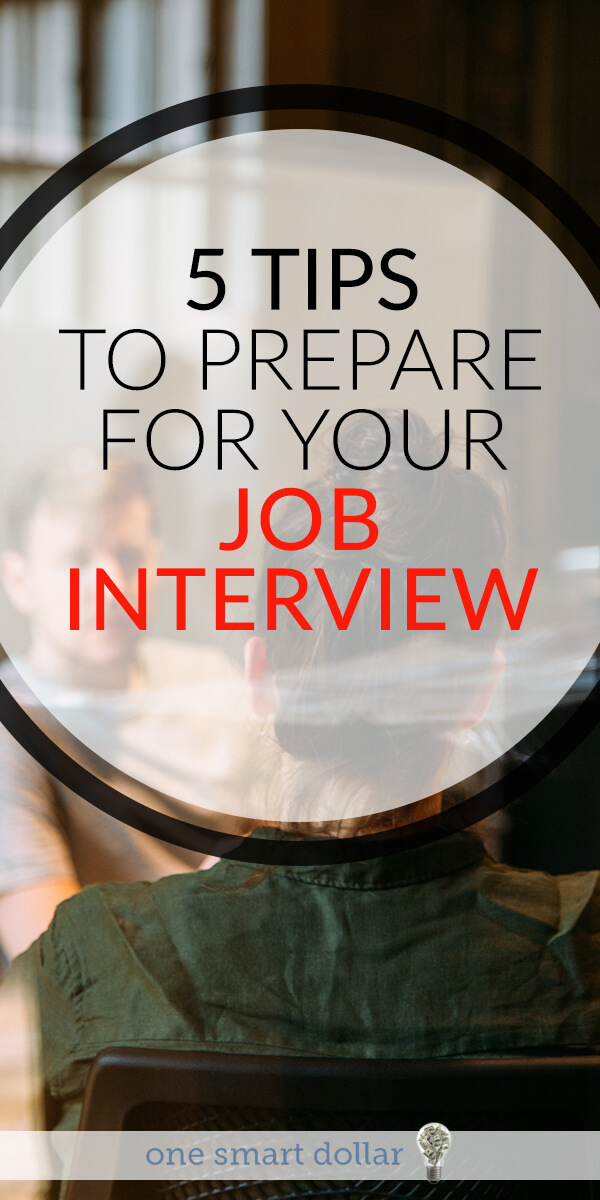
Let’s face it, interviews are intimidating! You can have all the confidence in the world, but when you stroll into that room you just want to shout, “I need this job!” Obviously, that’s not going to work. You can, however, prepare in such a way that you can walk in confident, and walk out confident.
Follow these five tips so your interview will go smoothly, and you can wipe out candidates who have more experience and a better education.
But be aware that these aren’t your ordinary tips like “remember to smile!” These are the things that really matter.
Research the Interviewer
You know enough to research the company, the position, the job duties, and everything else that goes along with the position you are seeking. But have you taken time to research the interviewer? You’re sitting down with a real person that has interests, hobbies, dreams, and ambitions. Figure them out, and you can get ahead in the interview process.
Also Read: Dress for Success – What to Wear to a Job Interview
Starting with Linkedin and Facebook, you can determine what the interviewer loves. You now have secret weapons where you can subtly sneak these topics into the conversation and create an instant bond with the person. Afterall, they may ultimately control the fate of whether or not you land the job.
Understand What the Company Needs
There are two aspects to a job listing: what the company posts and what they truly need. Here is where you can separate yourself from the average candidate.
The average candidate will look at the job posting and tailor their responses around what is posted. This is your chance to dig deeper and discover what is missing (often they don’t even realize it). During the interview, you can pull out a list of recommendations that the company can apply regardless of whether or not you get the job.
Annihilate the “Boring” Questions
We have all been through it. Some interview questions are ridiculous. Such as, “What’s your biggest weakness?” which is almost always answered with, “I’m a bit too much of a perfectionist, and can get caught up in the details.” That provides no value and you get marked off as just another forgettable applicant. This is your time to blow them away.
Instead, craft your weakness into a strength. Instead of admitting you lose sight of the big picture, tell how you have discovered your weakness, how you have taken steps to overcome it, and how you continue to grow and get better and you’re ready to take those new found skills to the next level.
It’s Not an Interrogation
Remember your first job interview? You were probably a teenager sitting down with a hiring manager 10 or 20 years older than yourself. You were nervous, palms sweaty, and were scared to death you would say the wrong thing and be turned down for the job. Here’s the good news: it’s a conversation, not an interrogation!
Also Read: How to Answer the Top 10 Most Common Job Interview Questions
Loosen up; ask the interviewer questions right off the bat so you know more about him or her. Remember, this is your future colleague. You want to create that bond so working together will be a great experience. Think of it as someone you know sitting down with you and explaining what they need help with; in turn, you explain how you can help.
Beef Up Your Credit
Many jobs today want to know how reliable their candidates are before they come to work. That means they run credit checks; poor choices financially can often mean poor choices elsewhere. That’s a bummer for those that have learned from their mistakes but haven’t had time to correct them.
If you’re not sure where your credit stands, make sure you check it with a company like Credit Sesame. If you have bad credit, long before the interview you need to be looking into credit repair companies. This will give ample time to have your credit back to where you’re looking good, so when you walk into the interview you are well prepared.
Making Sure that You’re Prepared for the Job Interview
You can develop your answers long before the interview even is a thought. Knowing yourself, how you have grown, and about how you can apply new skills is imperative. These items need to be done even before you apply for that next job.
Then, after you have applied and found out who will be conducting the interview, you can research the company and interviewer. Formulating a plan, learning all you can about them, and making yourself memorable will ultimately result in you moving from the “meh” pile to the “definitely follow up” pile.

